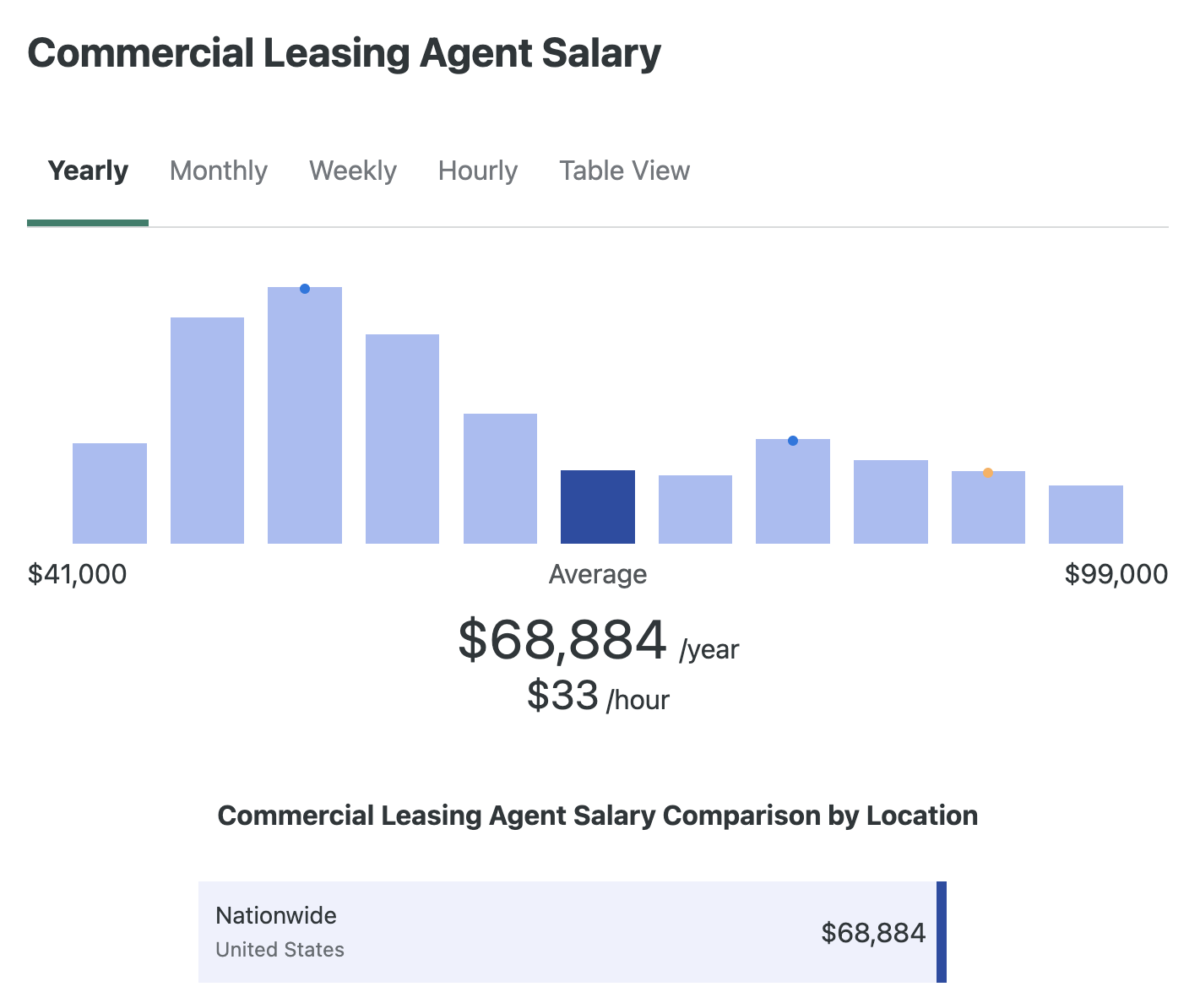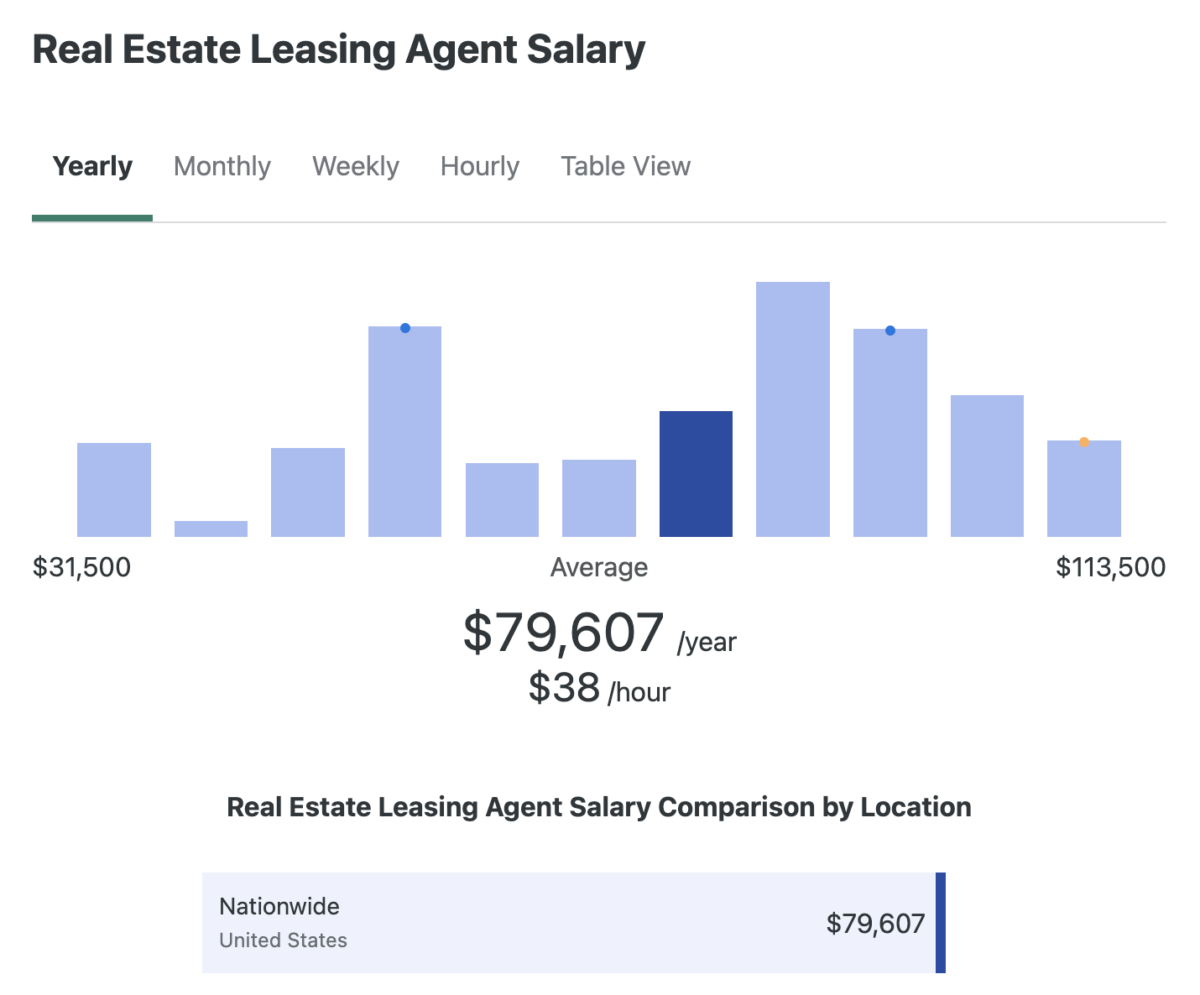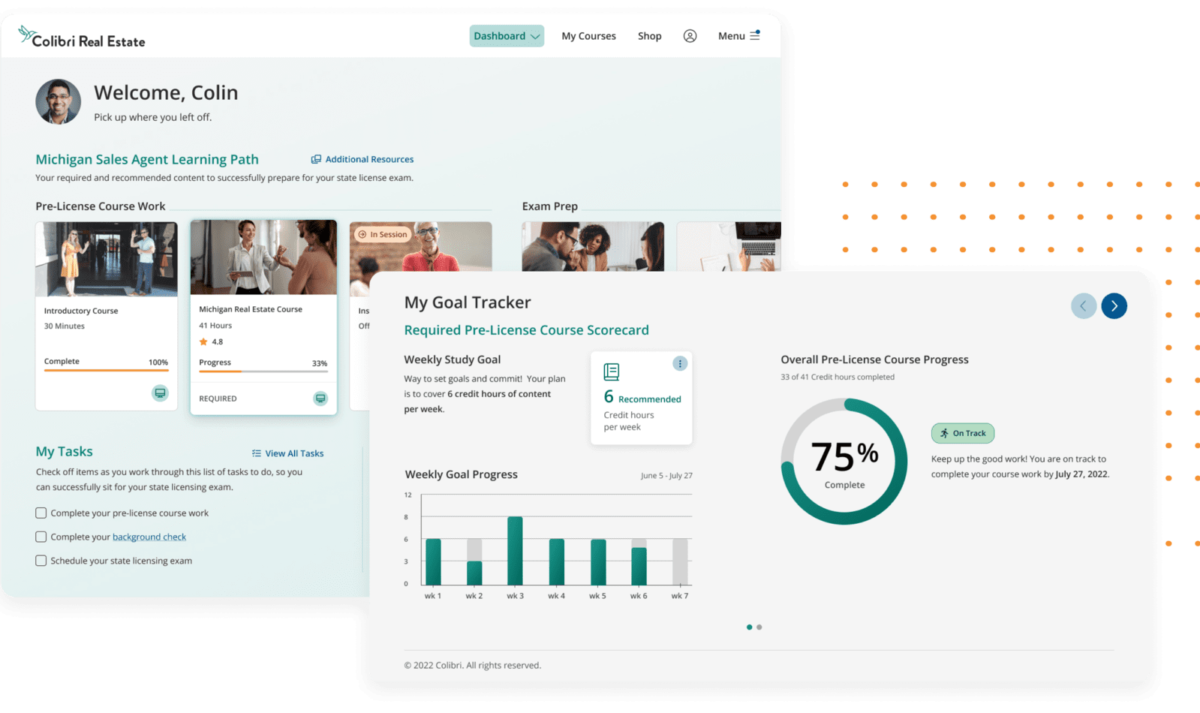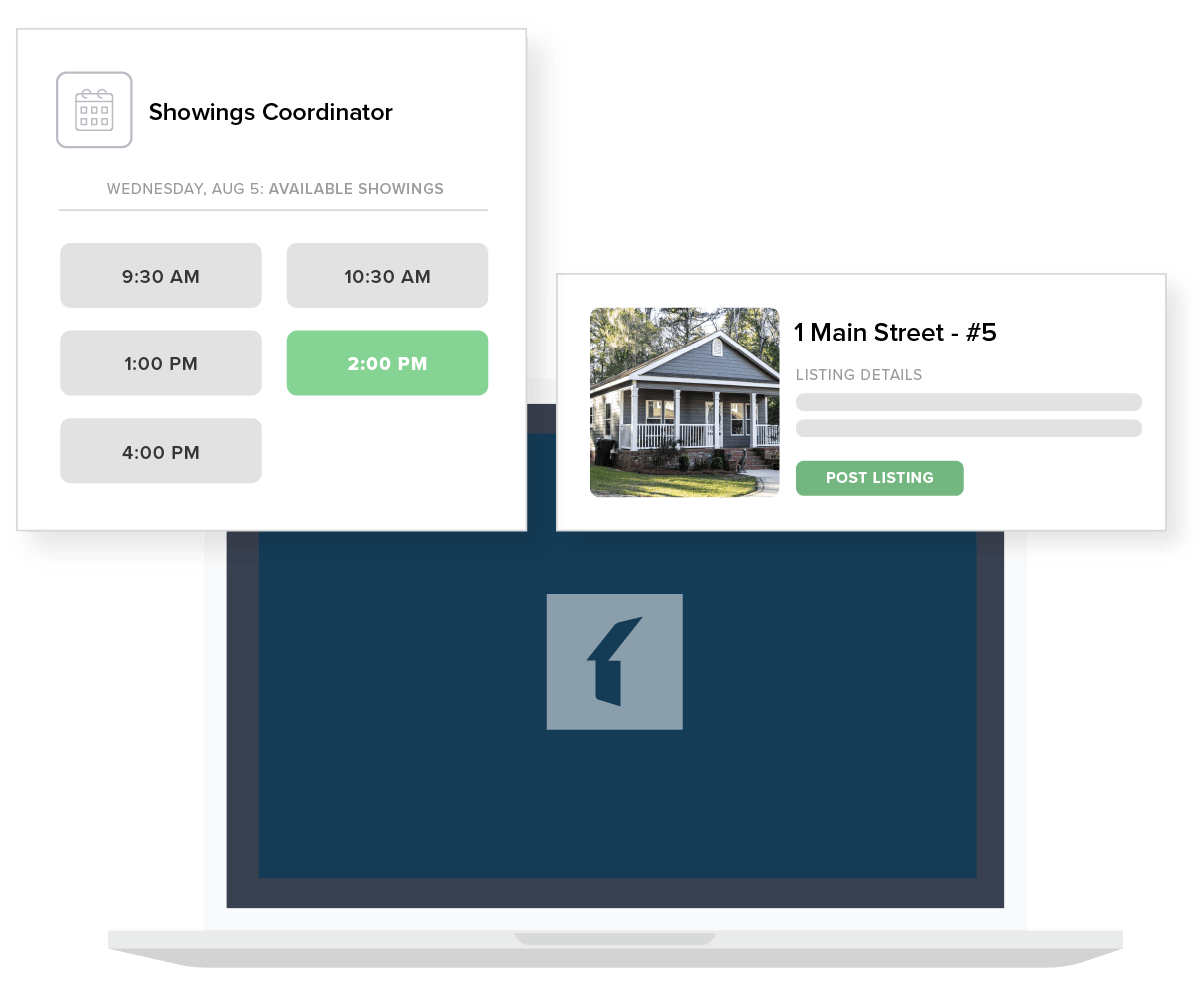In the real estate industry, leasing agents are crucial for connecting property owners with potential tenants. Like buyer or seller agents, you need the proper training and knowledge to understand your responsibilities, work with property management companies or landlords, build your client base, and manage rental listings. It might seem like a lot at first, but I’m here to show you how to become a leasing agent and get you started on the right track.
Step 1: Learn What a Leasing Agent Is & Their Responsibilities

Leasing agents are realtors, real estate agents, or brokers who liaise between property owners and prospective tenants. They primarily market and promote available rental properties, handle property showings, screen and qualify tenants, and negotiate lease agreements. Leasing agents are crucial in ensuring smooth and legally compliant transactions between property owners and renters while offering guidance and assistance throughout the leasing process.
Depending on the type of rental property, leasing agents may work onsite. For example, apartment complexes and multi-complex subdivisions, business offices, and industrial complexes often have agents who work in the main office, catering to the units and tenants within the company.
Some key responsibilities and tasks of leasing agents include:
- Marketing and advertising: Leasing agents promote rental properties through various channels to attract potential tenants.
- Property showings: Conduct tours of available properties to showcase their features and amenities to prospective renters.
- Tenant screening: Assess applicant qualifications and backgrounds to ensure they meet leasing criteria.
- Rental agreements: Prepare and negotiate leases and month-to-month rental contracts, specifying terms and conditions.
- Lease management: Oversee lease renewals and terminations, handling related documentation.
- Tenant communication: Address tenant inquiries, concerns, and maintenance requests.
- Record keeping: Maintain comprehensive property records, including lease agreements and tenant information.
What Skills Do You Need to Be a Leasing Agent?
There are various types of agents that all require specific skills. Successful real estate leasing agents possess a unique blend of traits and skills. Leasing agent requirements and qualifications may vary; however, having a well-rounded skill set enables you to thrive in the dynamic real estate leasing field. Here are some examples of the skills you may need:
- Communication skills
- Organization
- Time management
- Customer service
- Adaptability
- Empathy
- Research and market knowledge
- Marketing proficiency
- Sales skills
- Basic leasing law knowledge
- Basic technology understanding
- Patience
- Negotiation skills
- Problem-solving
- Motivation
- Active listening
- Transaction management
- Confidence
Choose to specialize in a leasing agent niche by working on commercial or residential properties. To learn how to get started in commercial real estate, check out our article, How to Become a Commercial Real Estate Broker.
Step 2: Consider Your Financial Goals & Salary Potential

Leasing agents typically get paid 50% to 100% of the equivalent of one month’s rent on the units where they secure a tenant. However, if they work for a property management company in a building or set of buildings, they may be paid an employee salary instead. They may also charge additional fees, such as tenant screening and lease renewals. Sometimes, the tenant pays the commission as part of their move-in costs, or if they hire an agent to help them secure suitable housing, or the landlord and tenant split the fees.
One financial benefit of being a leasing real estate agent vs a selling agent is that you can close many deals more quickly than it takes to list, market, and sell a house. While finding, screening, and securing good tenants can take time, there are no lender approvals, title searches, appraisals, or closings to deal with. Depending on the property type and rental prices, commissions can be lower than an agent would make from a sale, but this is not always true. Again, it depends on the property’s location and type.
💡Pro Tip: I used to use rental deals as a way to make money while I waited on closings. Working with renters is also a great way to continue building your pipeline of potential buyers.
How Much Can a Leasing Agent Earn?
According to ZipRecruiter, a commercial leasing agent’s salary can range from $41,000 to $99,000, with a national average salary of $68,884. A residential leasing agent earns between $31,500 and $113,500, averaging $79,607. What you will earn varies by location, experience, and rent values.


To determine how much money you can make as a leasing agent, do some market research to discover the average rents for your location and property type. From there, you’ll need to decide how many vacancies you need to lease and in what timeframe to determine your gross income. You can also look for a salaried position. Either way, there will be additional expenses to deduct:
- Marketing and advertising costs
- Traveling and vehicle expenses
- Overhead expenses like office and technology
- Professional dues and fees
- Multiple Listing Service (MLS) costs
- Insurance
- Continuing education
To learn more about which expenses you can deduct from your salary, see our article, 15 Real Estate Agent Tax Deductions.
Step 3: Get Licenses & Property Certifications
If you’ve ever wondered, “Do you need a license to be a leasing agent?” The answer is likely yes. However, leasing agent licensing requirements vary by state. In many US states, leasing agents may need a real estate license due to their involvement in real estate transactions like property showings, working for owners, and lease negotiations. That said, some states allow unlicensed employees to manage rental properties for owners, and others have separate leasing agent licenses.
Check your state’s regulations to determine whether licensing is needed. If licensing is required in your state, learn how to become a leasing agent by following these steps:
- Meet your state’s licensing requirements
- Complete prelicensing coursework
- Get fingerprints and a background check
- Pass the real estate exam
- Affiliate with a brokerage
- Obtain errors and omissions insurance
- Submit your license application
Continuing education may also be necessary for license renewal. To further aid your professional growth and development, look for continuing education classes related to leasing real estate and working with investors and property managers. Courses in negotiating and sales are also useful, as are legal disclosures.

To begin your education on how to become a leasing agent, get your prelicensing education with a real estate education platform such as Colibri Real Estate. Colibri offers comprehensive pre-licensing course packages tailored to each state. These packages include exam preparation, instructor assistance, and a vast library of professional development resources. Furthermore, Colibri supports your career journey with courses ranging from continuing education and broker licensing to post-licensing and luxury real estate certification.
You can also get a leasing agent certification through the National Apartment Association. The Certified Apartment Leasing Professional (CALP) designation provides coursework and hands-on learning and is recognized as a top certifying agency for obtaining an apartment leasing agent certification.
Step 4: Work With a Landlord or Property Management Firm
The decision to work as a leasing agent for an individual landlord or a property management company boils down to your long-term goals. For example, working for an independent landlord is a good option if you want full control over managing the property. If you want a salaried position with a few specific duties, a property management company may be the better choice, although this is not always true. Each option has advantages and disadvantages, so let’s examine the importance of choosing the right work environment and other factors to consider in firm selection.
Pros & Cons of Working for an Individual Landlord
By choosing an individual landlord over a property management company, finding clients could cost more time, and you may require broker affiliation. However, you could encounter less competition and receive rental referrals from your real estate sales agent colleagues. Additionally, if you sell real estate in addition to leasing, you will have two income streams with more frequent but smaller commissions from rentals and larger income from sales spread out over more months.
Here are some additional pros and cons of working for an independent landlord:
Pros & Cons of Working for a Property Management Company
Working as a leasing agent for a property management company has some definite advantages, like making it easier to get clients, fewer expenses, and the potential for a steady paycheck. However, it can provide less autonomy, client selection, and income potential. It could be a viable option if you’re looking for a way to get a leasing agent job without a real estate license. Therefore, you must weigh both the options of working for a brokerage and a property management firm, interview a few firms, and align your decision with your long-term goals.
Step 5: Be Knowledgeable of the Legal Aspects of Leasing

Using the correct legal documents is essential for leasing agents, safeguarding landlords and tenants, and ensuring a compliant rental process. The lease agreement should outline rental terms, specify rent amounts, due dates, security deposit handling, maintenance duties, and eviction procedures. Properly executing these documents protects clients from potential lawsuits.
Leasing agents need to know about landlord-tenant laws to have successful rental transactions. This helps them give the right advice to their clients, act ethically, and follow the law. For instance, understanding rent control rules allows agents to advise on rent limits, while knowing about fair housing laws helps prevent discrimination. This knowledge is crucial for handling tenant complaints, meeting legal obligations, and maintaining good relationships with landlords and tenants.
Step 6: Build Your Clientele With Marketing Strategies
Generating real estate leads is vital to a leasing agent’s role. Attracting tenants will build a thriving client base and ensure a steady business flow. Effective lead generation strategies can set you apart as the go-to leasing agent in a competitive real estate rental market.
There are several ways to generate client and tenant leads, including networking, referrals from your sphere of influence (SOI), nurturing relationships, delivering exceptional service, and building a solid reputation for reliability and professionalism as a leasing agent. Here are additional ways to build your client base:
- Build an online presence: Create a professional website and utilize real estate platforms like Zillow for your agent profile and Realtor.com to showcase your listings and expertise.
- Social media: Leverage social media platforms to engage with potential clients, share property updates, and establish your brand.
- Networking: Attend local real estate events and join industry associations to build relationships with fellow professionals and gain referrals.
- Content marketing: Produce informative blog posts, YouTube videos, or webinars about real estate trends and local insights to showcase your expertise.
- Email marketing: Maintain a contacts database and send regular updates, newsletters, and property alerts to stay on the radar of potential clients.
- Client testimonials: Encourage satisfied clients to provide testimonials and reviews that can build trust with prospects.
- Open houses: Host open houses to meet potential clients and other agents and showcase your properties.
- Community engagement: Get involved in local community activities and charities to establish yourself as a trusted local expert.
- Direct mail marketing: Send postcards, flyers, newsletters, etc., to generate interest in the properties you’re leasing.

Market Leader is a platform that helps you capture, convert, and close leads more effectively, from new lead generation to managing client relationships. It provides a suite of tools covering all real estate marketing and client management phases.
Step 7: Manage Rental Listings
Leasing agents play a crucial role in efficiently managing property listings. They create detailed listings that showcase the best features and benefits of the properties. These listings are promoted across various channels such as online platforms, social media, and real estate IDX websites to attract potential tenants. When inquiries arise, leasing agents promptly respond, scheduling property viewings and handling negotiations to help secure successful lease agreements.
During appointments, leasing agents showcase the property’s features and answer questions, aiming to lock in lease terms that work for both the property owners and tenants. They play a key role in ensuring everyone’s on the same page, addressing any concerns, and going from checking out the property to signing the lease as smoothly as possible.

With Buildium, prospective tenants can book showings quickly and conveniently online. The system seamlessly syncs with your calendar to ensure showings align with your availability. Additionally, the platform automates follow-up communications with email or text responses, maintaining tenant engagement throughout the leasing process. All your listings, showings, and prospects are easily monitored in one place, providing comprehensive insights through detailed reporting for efficient property management.
Frequently Asked Questions (FAQs)
What are the pros of being a leasing agent?
Becoming a leasing agent offers several advantages. It provides flexible work hours and locations, potentially allowing for more work-life balance. The real estate industry often offers lucrative earning potential through commissions, and leasing agents can earn faster through rentals than when a house closes. Additionally, the role can be personally rewarding, as leasing agents help individuals find suitable homes while continuously expanding their market knowledge
What are the cons of being a leasing agent?
While being a leasing agent has advantages, it also has some drawbacks. The job often demands irregular hours, including weekends and evenings, to accommodate clients’ schedules. Earnings can be variable and commission-based, leading to income fluctuations. Handling difficult tenants or property issues can be challenging and stressful. Also, leasing agents must close more deals since rental commissions are lower than sales income.
Which states have the strictest landlord-tenant laws?
Several US states, including California, New York, and Massachusetts, have notably strict landlord-tenant laws. These states offer tenants strong protections against eviction, rent increases, and other tenant rights violations. Some rent control or stabilization laws limit how much landlords can increase rents. Additionally, they impose strict regulations on security deposits and maintenance requirements to ensure safe and habitable rental properties, making them some of the most tenant-friendly states.
Bringing It All Together
It’s official: you’re all set up for success and have the tools you need to become a leasing agent in your neck of the woods. Since leasing agent requirements vary, research your local area before you hit the ground running. Real estate offers a lot of exciting opportunities, and with a focus on leasing, you can build a lucrative and thriving career in the industry.











Add comment